The word “infantry” is defined by the Merriam-Webster Dictionary as “soldiers trained, armed, and equipped to fight on foot.” This is a modest definition for soldiers who, since time immemorial, have fought as the vanguard of the military power of their respective national entities.
In his landmark 1997 book, The World Within War: America’s Combat Experience in World War II, author Gerald Linderman notes that in numerous theaters, Army infantrymen and Marine riflemen constituted 14% of American troops overseas while suffering 70% of the casualties.
Since World War II, 4% of the total uniformed force—the infantry squad—has suffered almost 90% of U.S. military combat deaths, according to a 2018 Association of the U.S. Army Spotlight paper called “Regaining Tactical Overmatch: The Close Combat Lethality Task Force,” by retired Col. Daniel Roper. Roper is AUSA’s director of National Security Studies.
This disproportionate discrepancy of casualties among combat soldiers leads to a fellowship among infantry soldiers that is unlike those from other branches.
While virtually all branches of service experience the rigors of combat, the intimacy of life in infantry battalions is unique. Examining infantry combat among front-line units of World War II reveals how the sacred bond is fostered and why it endures.
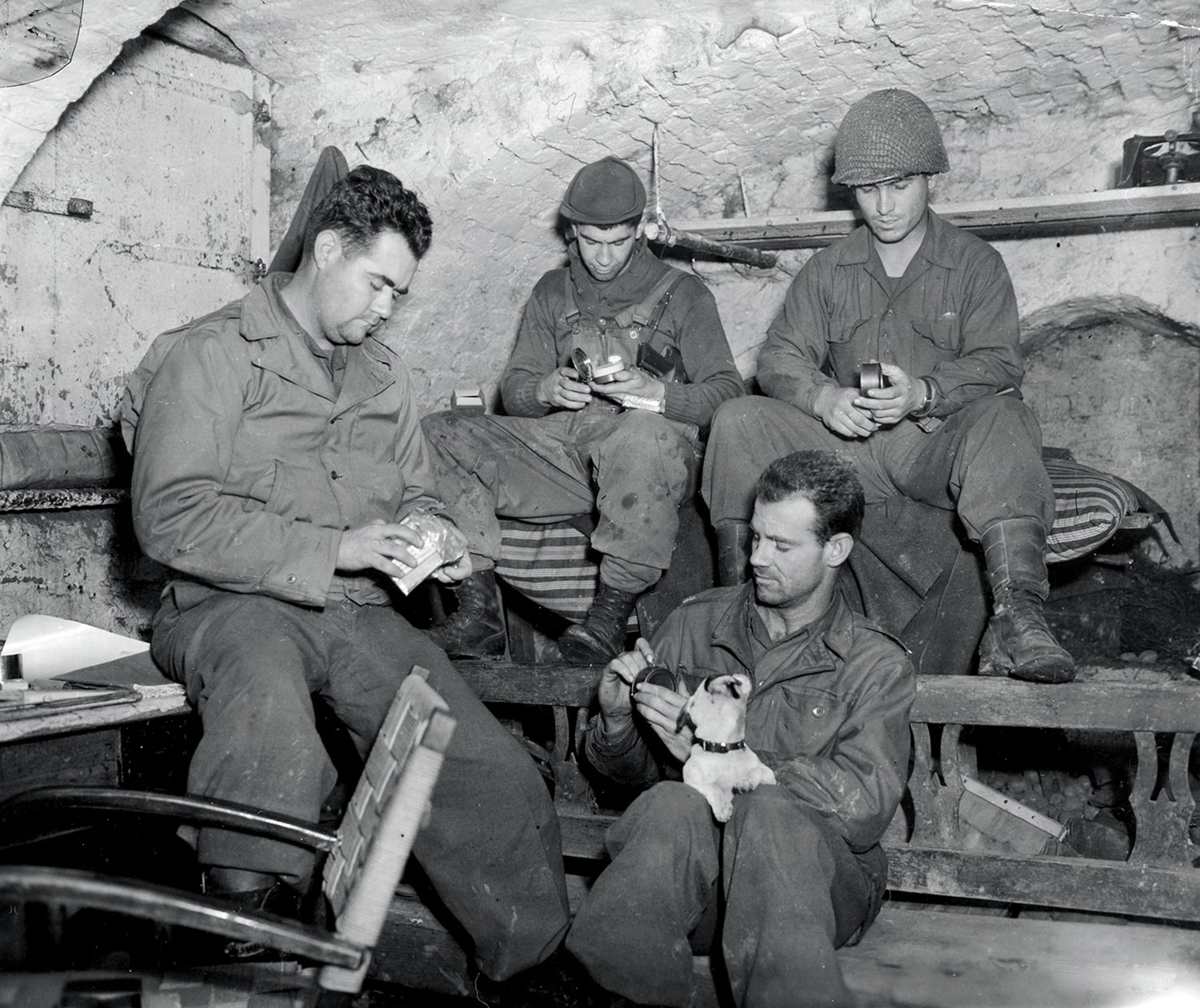

Close-Knit Company
Ernie Pyle, America’s most famous war correspondent of World War II, described life in infantry companies in a newspaper column headlined “The Fabulous Infantry.” As inspiration for his column, Pyle, a veteran combat correspondent of North Africa and Sicily, accompanied the 34th Infantry Division to Italy. By the winter of 1943–44, when Pyle joined it, the 34th Division had been away from home two years.
As part of his assignment, Pyle spent a week with an infantry company commanded by Lt. John Sheehy. Sheehy’s company was typical of infantry units in World War II. The lives of these battle-tested warriors consisted wholly and solely of war, wrote Pyle, “for they were and always had been front-line infantrymen.” Each had survived “because the fates were kind to them, certainly—but they had become hard and immensely wise in animal-like ways of self-preservation.”
As replacements filled the depleted ranks of Sheehy’s company, they coalesced around this small cadre of battle-hardened veterans.
Sheehy informed Pyle that each veteran comprised everything a military man would want in a soldier. After a few days, Sheehy introduced Pyle to his personal hero, a platoon sergeant named Frank “Buck” Eversole, a cowboy from Twin Falls, Idaho. Eversole had been at the front for more than a year and was one of the company’s “old-timers.” In Pyle’s words, “War was old to him and he had become almost the master of it, a senior parent in the institution of death.”
Pyle asked Eversole about the burdens of sending men into combat. “I know it ain’t my fault that they get killed,” Eversole replied, “and I do the best I can for them. But I’ve got so I feel like it’s me killin’ them instead of a German. I’ve got so I feel like a murderer. I hate to look at them when the new ones come in.”
Pyle was deeply affected by his observation of—and admiration for—Sheehy’s company. Before he departed the unit, he summarized the tenacity of these men’s bonds to one another this way: “The ties that grow between men who live savagely together, relentlessly communing with Death, are ties of great strength. There is a sense of fidelity to each other in a little corps of men who have endured so long, and whose hope in the end can be so small.”
Baptism by fire is an infantryman’s sacrament. Two junior officers, Capt. Joe Dawson of the 1st Infantry Division and 1st Lt. Dick Winters of the 101st Airborne Division, were baptized as company commanders on D-Day. Their accounts of the experience reinforce Pyle’s observations of the intimacy that exists within the infantry community.
Dawson’s company—Company G, 2nd Battalion, 16th Infantry Regiment, 1st Infantry Division—had served in the Mediterranean Theater, but D-Day was the first time its men had been under Dawson’s command. Like Pyle, Dawson was a veteran of North Africa and Sicily, but he had never led soldiers in combat. Landing at Omaha Beach in Normandy, France, Dawson was reportedly the first company commander to penetrate enemy lines on the bluffs overlooking “Bloody Omaha.”
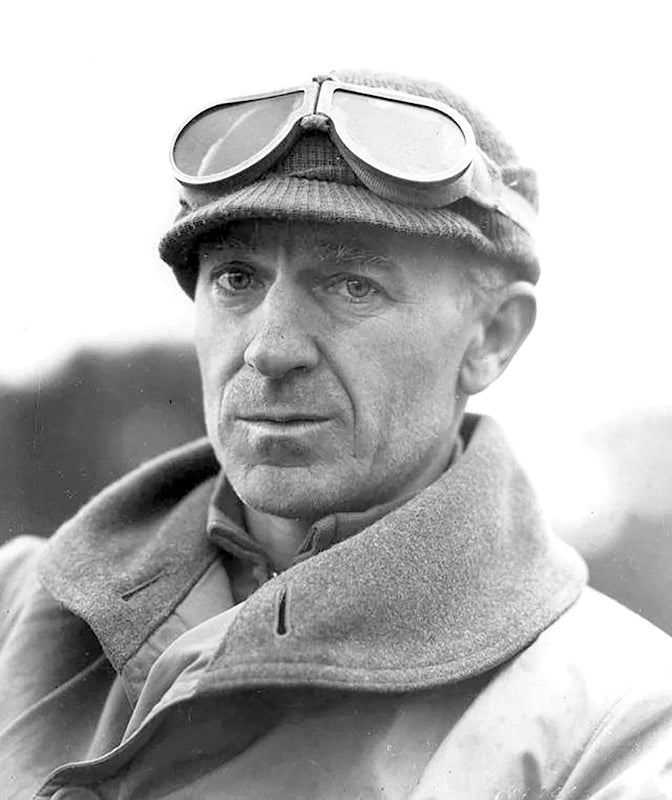
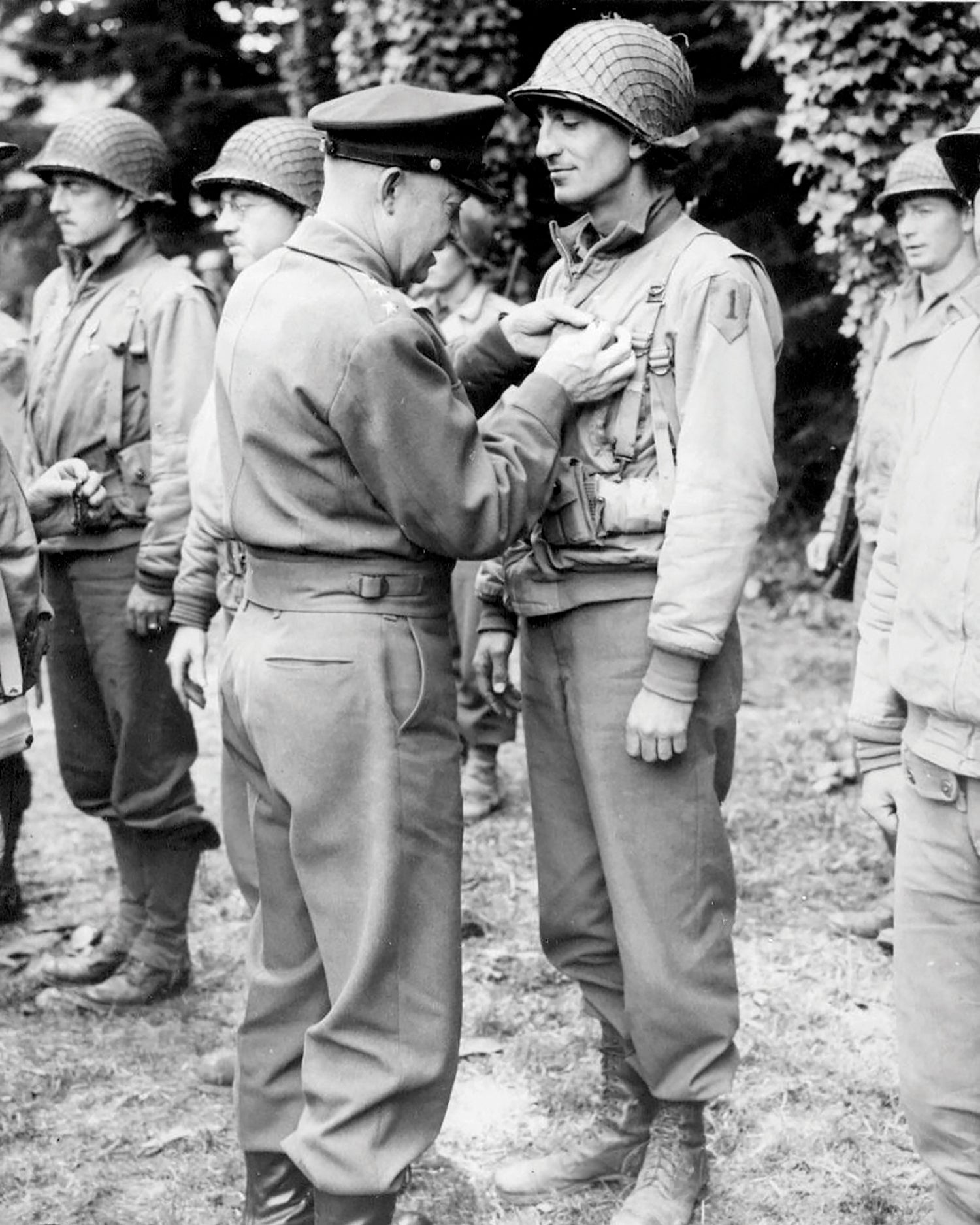
Finding Peace
Shortly after D-Day, Dawson reflected on what Company G had accomplished, writing, “Amid the apple trees of this bit of France, with the symphony of war encompassing me, I have found peace of heart and soul never before attained in all my life. For here, I am with the bravest, finest, grandest bunch of men that God ever breathed life into. Before it’s all over, you will know this is true and that this company is my life.”
Several miles west of Omaha Beach, 1st Lt. Winters assumed command of Company E, 506th Parachute Infantry Regiment, when its company commander was killed. Gathering 12 paratroopers from his dispersed company near Brecourt Manor on the outskirts of Sainte-Marie-du-Mont, Winters’ team destroyed four German artillery guns firing on Utah Beach. Outnumbered 4-to-1, it dispatched the battery in 30 minutes.
Years later, Winters became the subject of Stephen Ambrose’s 1992 book, Band of Brothers: E Company, 506th Regiment, 101st Airborne from Normandy to Hitler’s Eagle’s Nest. I had the opportunity to interview Winters on multiple occasions. Though Winters was promoted to battalion command, his paratroopers in Easy Company remained dearest to his heart. Winters said, “Easy Company were the best men I have ever known. The result of sharing all the stress throughout training and combat has created a bond between the men that will last forever. I don’t think I ever left Company E. As I reflect on my life since the war, I can honestly say that it has been a lifetime search for men like those I knew in Easy Company.”
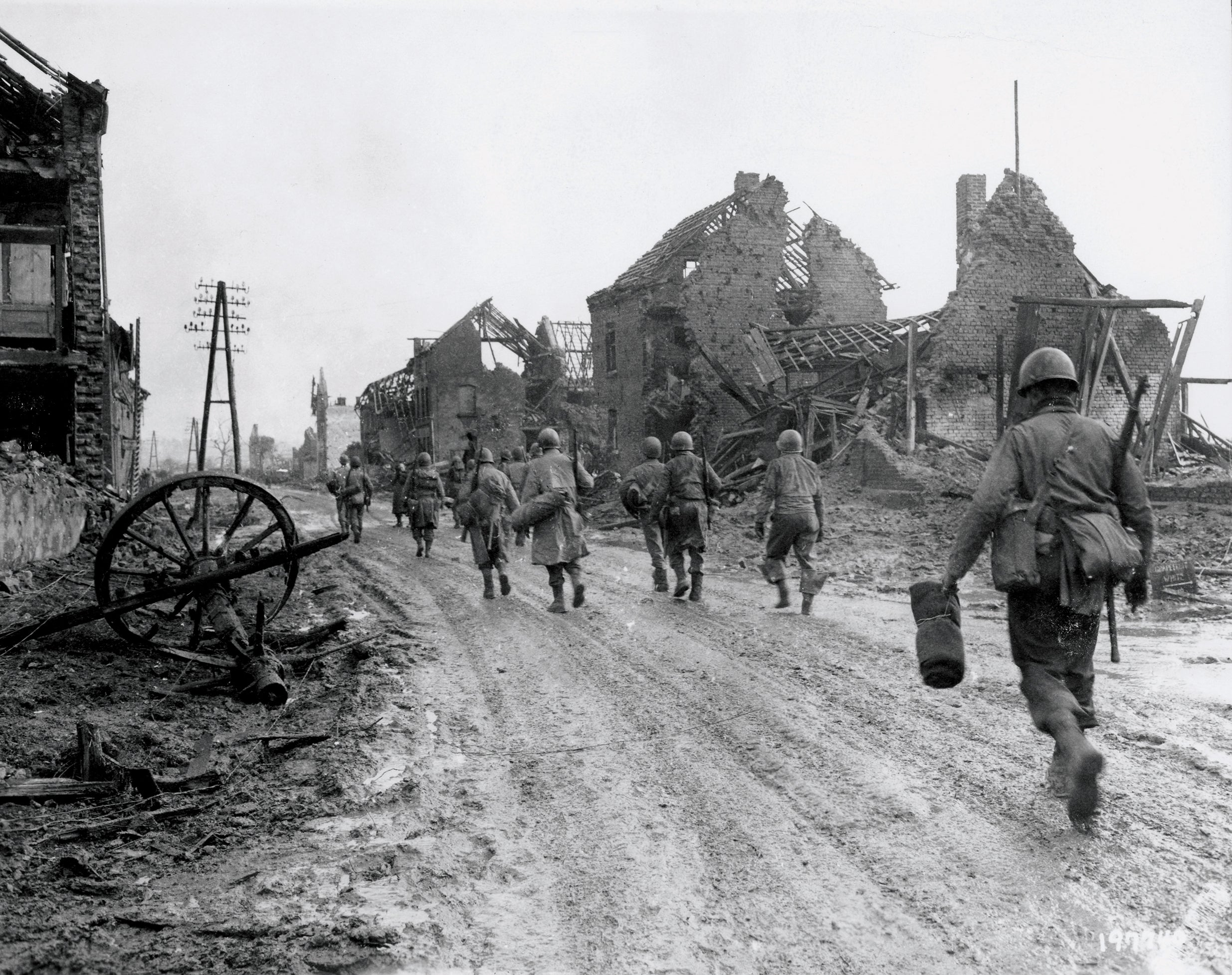
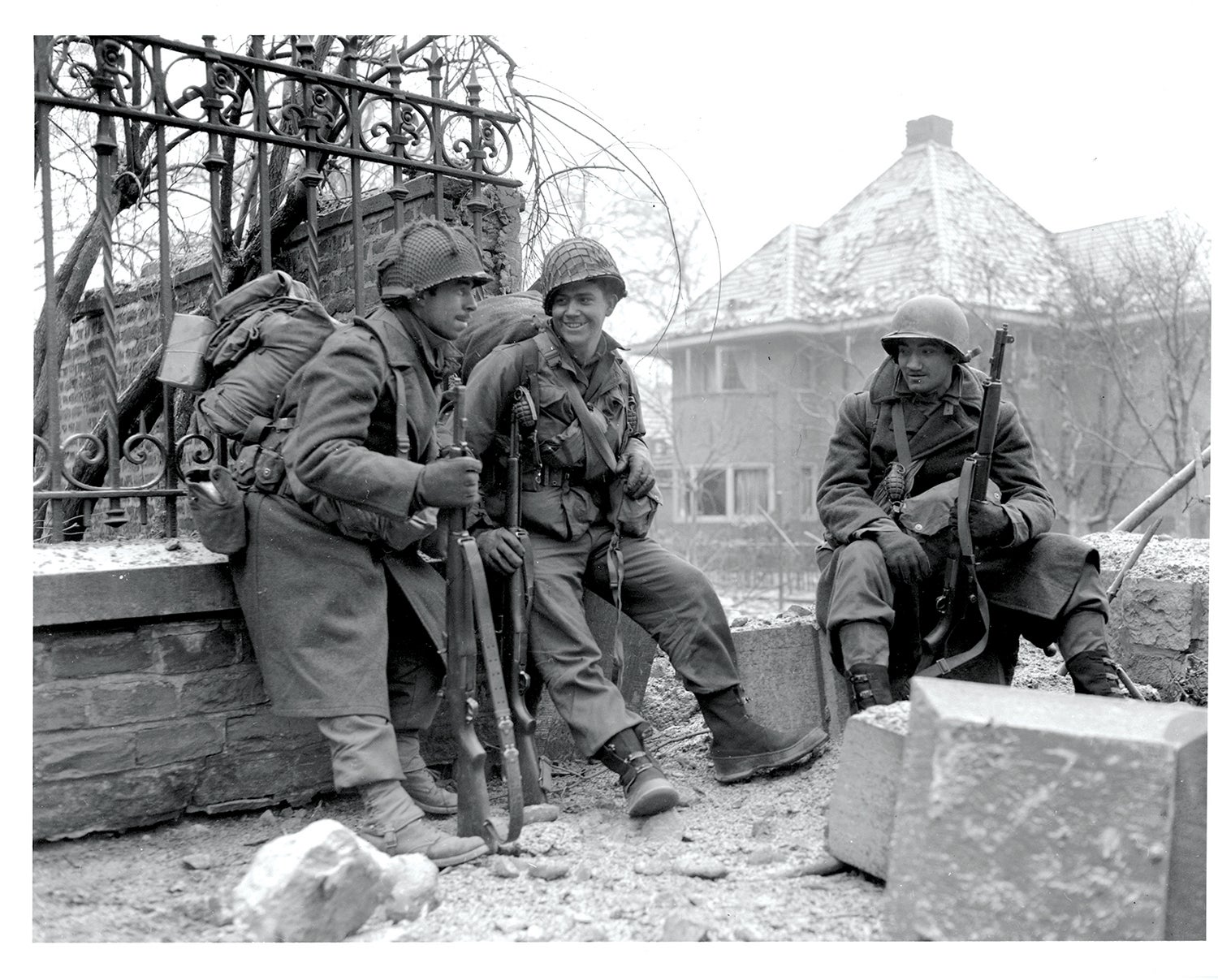
Comrades in Arms
Numerous real-time dispatches from the front, along with retrospective narratives from soldier memoirs, evidence the cohesion within front-line infantry units. Comradeship, Linderman wrote, was an agreement between soldiers that they would, in the service of self-preservation, assist one another to survive battle.
So strong was company identity that wounded infantrymen frequently refused to be evacuated from the front lines. Many who were initially treated for their wounds hastily returned to their respective commands rather than be reassigned once they recovered.
Dawson, for example, went AWOL from the evacuation station after D-Day to return to Company G. And when Eversole’s company commander ordered him off the line for five days near Monte Cassino, Italy, Eversole informed Pyle, “I feel like a deserter. … This is the first battle
I’ve ever missed that this battalion has been in. I sure do hope they have good luck.”
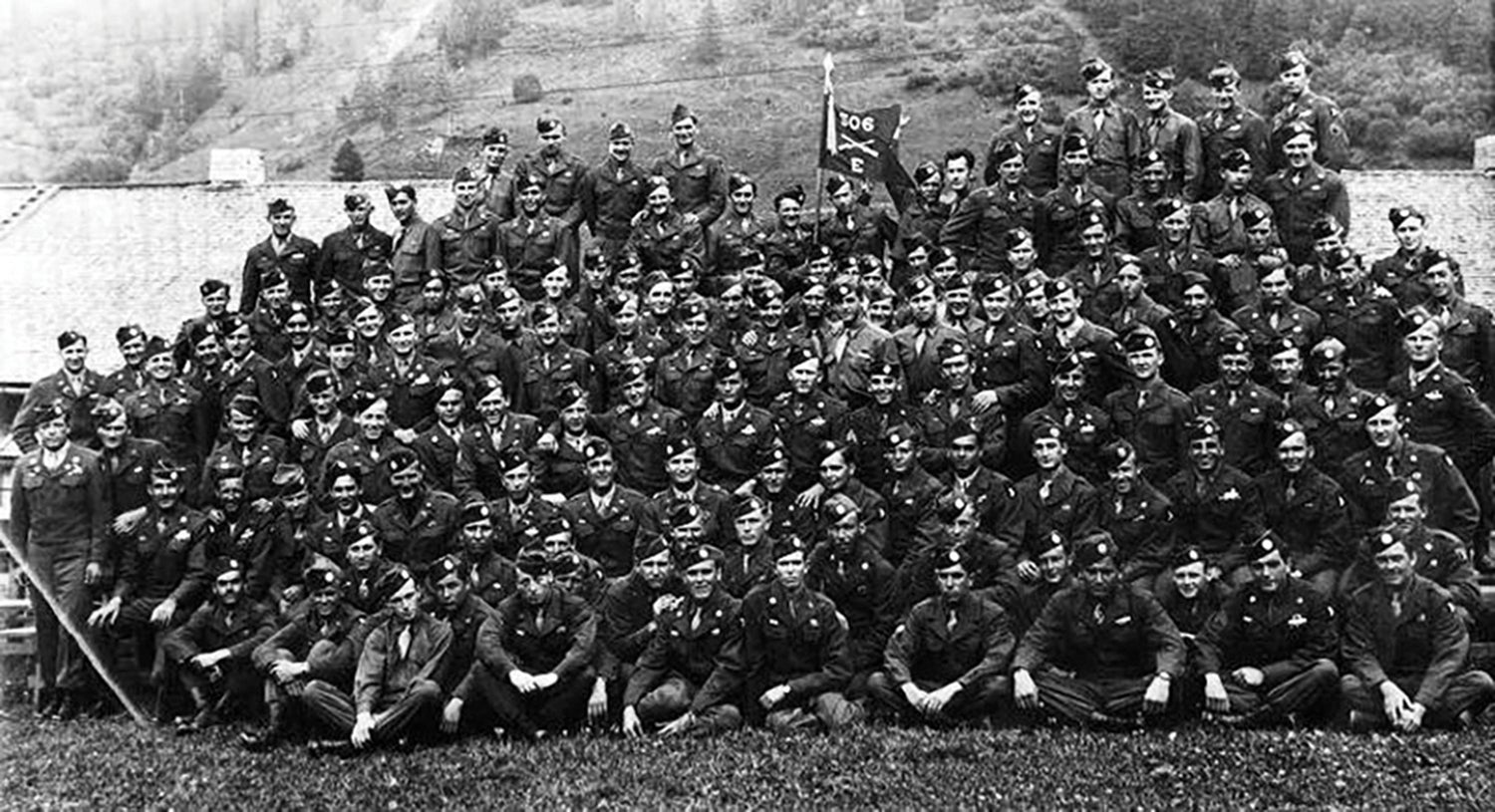

On Verlautenheide Ridge outside of Aachen, Germany, in mid-October 1944, war correspondent Bill Heinz visited Dawson and his company in the heat of the battle. After a few days, Heinz got the beleaguered company commander to talk, asking him why he had selected two Pennsylvania solders—Sgt. William Cuff and Pfc. James Mullen—and offered them a six-day furlough in Paris. The next morning, Cuff and Mullen’s platoon leader arrived at Dawson’s command post and informed the commander, “Captain … Cuff and Mullen say they don’t want to go to Paris.” “All right,” Dawson replied. “Get two other guys—if you can.”
The commander next informed Heinz that he had men who had been wounded in mid-September and had returned because they were concerned for their buddies if Company G remained on the ridge.
“Then,” Dawson said, “somehow they get out of these hospitals and the first thing I know they show up again here, and they’re grinning from ear to ear.” Why? Left unsaid was the camaraderie that existed among the fighting men of Dawson’s company, closeness that compelled soldiers to repeatedly risk their lives for their buddies on the front line.
During the Battle of the Bulge, Staff Sgt. Joe Toye of the 101st Airborne Division returned to the line after being wounded several times prior to the division entering Bastogne, Belgium. Two days later, he suffered his fourth wound and lost a leg.
“No one wanted to leave his buddies in Easy Company,” Winters said. “There are few positions in the Army that provide greater joy and sorrow because it is a privilege to be associated with soldiers in their success and gut-wrenching when the gods of war snuff them away.”
* * *
Col. Cole Kingseed, U.S. Army retired, a former professor of history at the U.S. Military Academy, West Point, New York, is a writer and consultant. He holds a doctorate in history from Ohio State University.

